No Commonwealth Games at the Cost of Common People
Students, Teachers and Workers join AISA’s Public Hearing on the Common Wealth Games
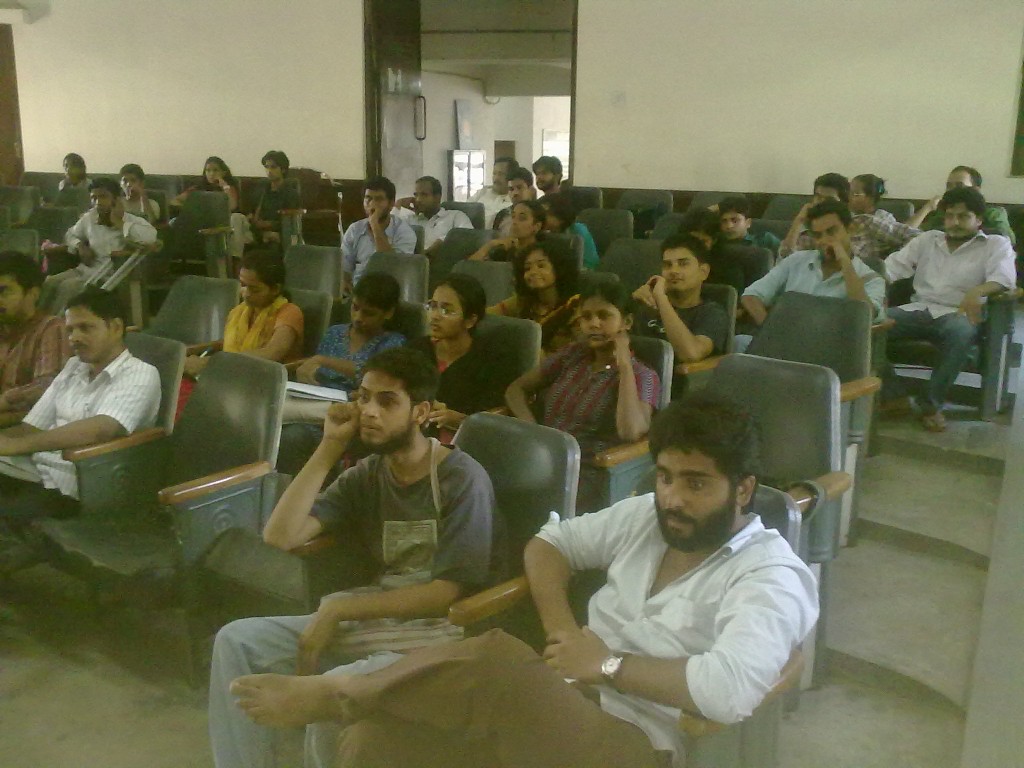 In a Public Hearing on the Commonwealth games organized by the All India Students’ Association on Monday, 2nd August, 2010, students, vendors, workers, trade unionists and teachers came together to narrate their experiences. Members of the jury included Dunu Roy, from the Hazards Centre; Dr. Manoj Jha, Dept. of Social Work, DU; Dr. Maninder Thakur, JNU; Vijay Singh, Academic Council Member, DU; and Santosh Roy, General Secretary, AICCTU Delhi. Anupam Roy’s paintings on the condition of workers in the Commonwealth Games (CWG) projects were also exhibited at the venue.
In a Public Hearing on the Commonwealth games organized by the All India Students’ Association on Monday, 2nd August, 2010, students, vendors, workers, trade unionists and teachers came together to narrate their experiences. Members of the jury included Dunu Roy, from the Hazards Centre; Dr. Manoj Jha, Dept. of Social Work, DU; Dr. Maninder Thakur, JNU; Vijay Singh, Academic Council Member, DU; and Santosh Roy, General Secretary, AICCTU Delhi. Anupam Roy’s paintings on the condition of workers in the Commonwealth Games (CWG) projects were also exhibited at the venue.
At the outset, Sunny Kumar, AISA DU Unit Secretary spoke of how the Delhi University Administration has evacuated Undergraduate hostels of different colleges for the CWG, without even having considered providing alternative accommodation to the ousted students. At the beginning of this session, in Delhi University, over 2000 students have been evicted suddenly from their hostels and left with nowhere else to go. He pointed out that while the University Administration has been very active in pushing through the Semester System, they have been completely inactive while arranging lodging facilities for hostlers forcibly displaced by the Games. The Delhi Rent Control Act, which limits excessive increase in rents, is not being implemented which is leading to the great harassment of students.
Speaking about his experiences, Niraj a student of the MA, Linguistics DU said that he lived in the Christian Colony of North Campus, where many students are forced to live in unhygienic conditions, have minimal facilities of electricity and water, and yet are charged huge rents. He said that after the evacuation of Under Graduate hostels, the landlords in nearby areas have increased the rent manifold as they know that the students have no alternative left. Because of this, a one room set in the Vijay Nagar area, which earlier was around Rs. 3000-4000 per month, is now available at not less than Rs. 7000 per month, and the same in the Hudson lane area of the locality is available at not less than Rs. 10000 per month rent. He said that the girl students are worst affected because of these changes.
Vijay, from the Campus Law Centre said that although he topped the entrance of LLB in the Physically Handicapped category, he had still been unable to avail of hostel facilities. He said that the University Administration had not shown even the slightest concern for PH students, who were summarily asked to vacate their hostel rooms. It was only after the intervention of the Court that they were reinstated in the hostels. Another PH student, Kuddus from Zakir Hussain College said that the DU is the most insensitive University for the Physically Challenged students, as despite the court orders, PH hostlers in all UG hostels have still not been reinstated.
Nemwati, a vendor from Ashok Vihar area said that the police is harassing all vendors in the name of ‘New Vendor Policy’ (introduced in the wake of CW Games), which aims at giving licenses to only 50,000 vendors, out of 4 lakh vendors of the city. As a result, the vendors are left at the mercy of the police, which is continuingly extorting money from them. Representative of rickshaw-pullers shared similar experiences with the jury. They complained of the introduction of anti-worker licensing system which deprived most of them from licenses. The construction workers complained of less than minimum wages, and hazardous and un-hygienic living conditions. Indrajit, from PUDR provided a detailed report on the rampant corruption of the CWG and discrimination against labourers.
Responding to these testimonies, jury member Manoj Jha spoke of the need to save our democratic spaces of dissent in this present context of the CWG. Vijay Singh of Academic Council, DU said that when the powers-that-be try to project this event as an indicator of ‘India’s pride’, the ugly truth behind the Games has come to the fore. And the common people of Delhi are protesting against the exploitation of workers, the displacement of the poor, the reckless corporatization, the spiraling budgets, the substandard infrastructure, and the environmental degradation.
Dr Manindra Thakur of JNU said that it was shameful that more than about 1 lakh crore rupees had been spent on this game, in a country like ours where the percentage of children suffering from malnutrition competes the figures of sub-Saharan Africa. He said that the delay in the projects is deliberate, as due to this, the attention shifts from carefully auditing the expenses to hurriedly complete the projects, and the contractors make easy extra money, inflating the bills.
Santosh Rai said that violations of workers’ rights are rampant at CWG sites. Neither minimum wages nor overtime payments are provided. Working conditions are unsafe and worksite facilities, crèches or even proper housing are absent.
Dunu Roy said that in the wake of this assault, all forces of the affected students, vendors, teachers and workers needed to join hands to defend their rights. The hearing resolved to continue the struggle against these aspects of the games, in a united manner.
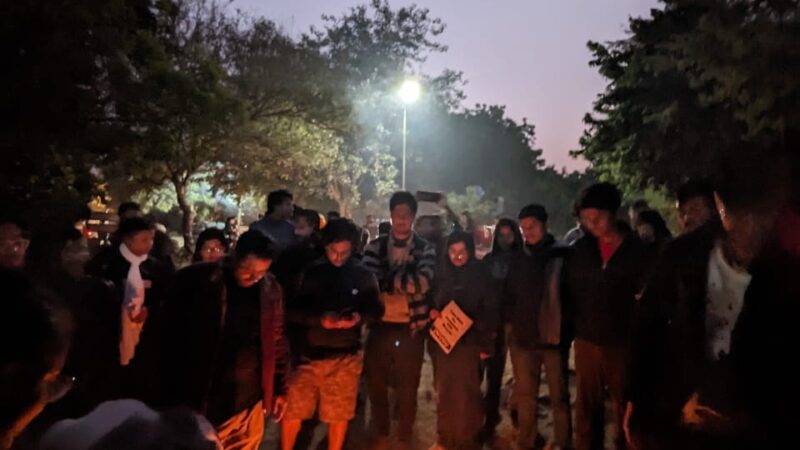
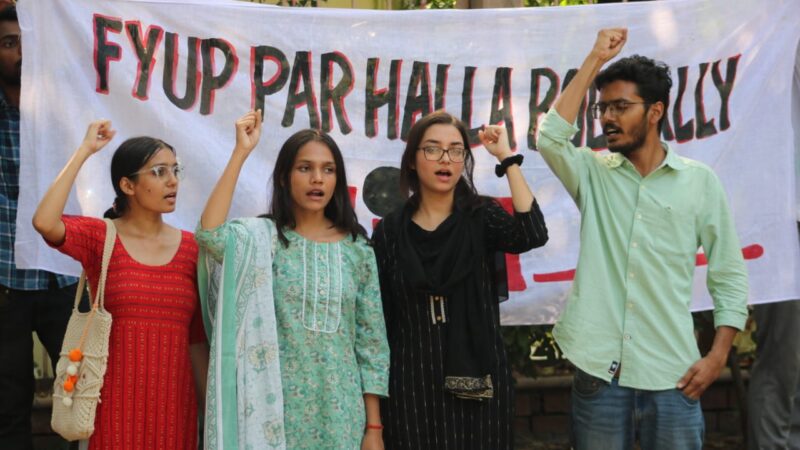
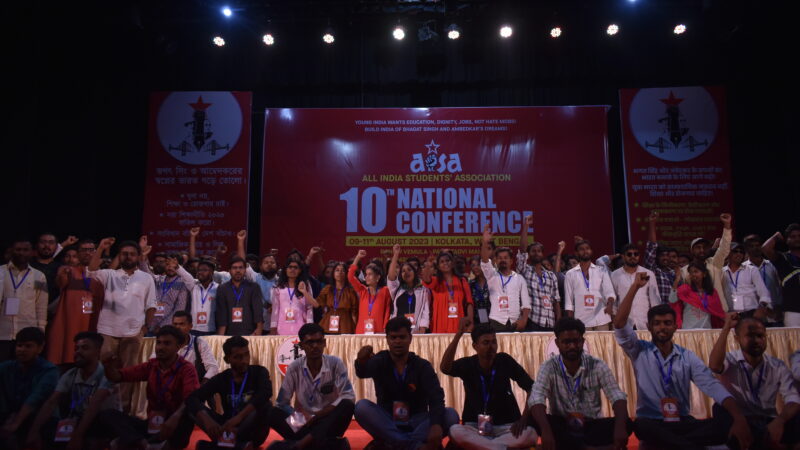
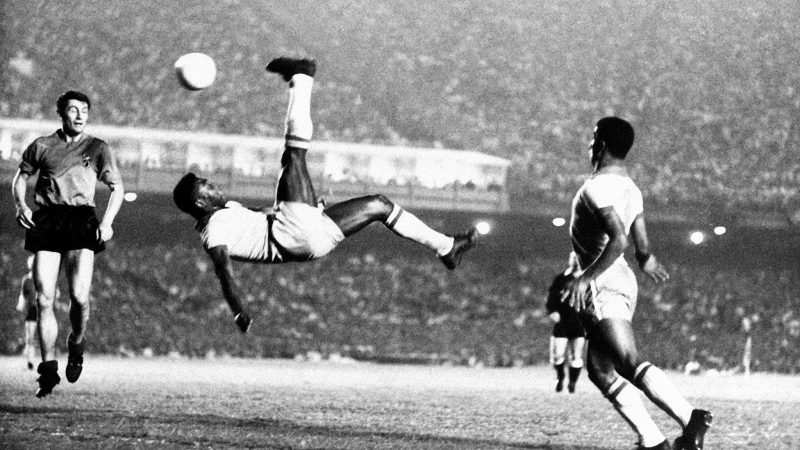
say no to this multi million rupees scam called common wealth game